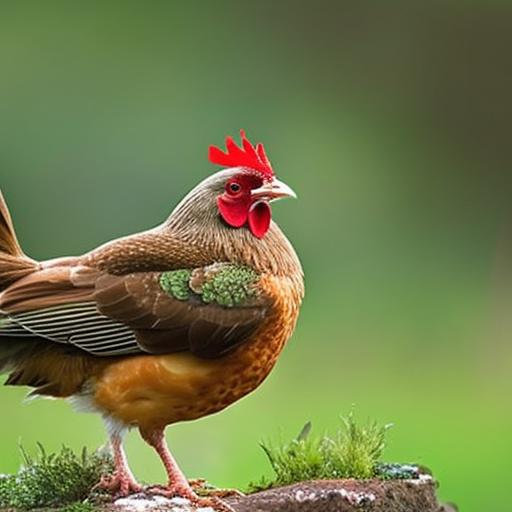Raising chickens can be a fun and rewarding experience, but it also comes with its own set of challenges. One of the biggest challenges is protecting your chickens from predators. Predators such as raccoons, foxes, coyotes, hawks, and owls can pose a serious threat to your flock. Not only can they kill and eat your chickens, but they can also cause stress and fear among the flock, which can lead to decreased egg production and overall health issues.
In this blog post, we’ll discuss some effective ways to keep your chickens safe from predators. By implementing these strategies, you can help ensure that your chickens stay healthy and happy.
Key Takeaways
- Predator control is crucial for the safety and health of chickens in coops.
- Common predators of chickens include raccoons, foxes, and hawks.
- Proper fencing and netting can help secure the chicken coop.
- Motion-activated lights and alarms can deter predators.
- Keeping the chicken coop clean and free of food scraps can also help prevent predators.
Identify the Common Predators of Chickens
Before you can protect your chickens, you need to know what you’re protecting them from. Common predators of chickens include raccoons, foxes, coyotes, hawks, and owls. Each predator has its own unique behaviors and habits, so it’s important to do your research and understand how to deter each one.
Raccoons are notorious for their ability to break into chicken coops. They are intelligent and dexterous creatures that can easily open latches and doors. Foxes are also skilled hunters and can dig under fences or squeeze through small openings to get to your chickens. Coyotes are known for their cunning nature and will often work in packs to take down larger prey like chickens. Hawks and owls are aerial predators that can swoop down from above and snatch up unsuspecting chickens.
Secure Your Chicken Coop with Proper Fencing and Netting
One of the most effective ways to keep predators out of your chicken coop is to install proper fencing and netting. The fencing should be sturdy and at least six feet tall to prevent predators from jumping over it. It’s also important to bury the fencing at least a foot underground to prevent predators from digging underneath it.
In addition to fencing, it’s also a good idea to use netting to cover the top of the coop. This will prevent predators like hawks and owls from swooping down from above and grabbing your chickens. Make sure the netting is securely attached and doesn’t have any holes or gaps that predators can squeeze through.
Install Motion-Activated Lights and Alarms
Motion-activated lights and alarms can be effective deterrents for nocturnal predators like raccoons and foxes. When the lights or alarms go off, it can startle the predator and make them think twice about trying to get into your coop.
Install motion-activated lights around the perimeter of your chicken coop. These lights will turn on when they detect movement, which can scare away predators. You can also install motion-activated alarms that emit loud noises when triggered. These alarms can be effective at scaring off predators and alerting you to their presence.
Keep Your Chicken Coop Clean and Free of Food Scraps
Predators are attracted to the smell of food, so it’s important to keep your chicken coop clean and free of food scraps. Make sure to clean up any spilled food or water, and dispose of any food scraps in a secure container.
Regularly clean out your chicken coop to remove any droppings or debris that may attract predators. Keep the area around the coop free of tall grass or brush, as these can provide cover for predators. By keeping your coop clean and free of food scraps, you can reduce the likelihood of attracting predators.
Use Natural Predator Deterrents, Such as Plants and Animals

Some plants and animals can act as natural deterrents to predators. For example, planting thorny bushes around your coop can make it difficult for predators to get close. Roses, blackberries, and holly bushes are all good options for creating a natural barrier around your coop.
Keeping a rooster with your hens can also help deter predators. Roosters are protective of their flock and will often sound the alarm if they sense danger. Their presence alone can be enough to scare off some predators.
Train Your Dogs to Protect Your Chickens
If you have a dog, consider training them to protect your chickens. Dogs can be effective at scaring off predators and keeping them away from your coop. Introduce your dog to the chickens when they are young so they become familiar with them. Train your dog to stay near the coop and alert you if they sense any danger.
It’s important to note that not all dogs are suitable for protecting chickens. Some breeds have a strong prey drive and may see the chickens as potential prey. Make sure to choose a breed that is known for being good with small animals and has a low prey drive.
Consider Using Traps and Repellents
Traps and repellents can be effective at keeping predators away from your coop. Live traps can be used to catch and relocate predators, while repellents like coyote urine can be used to deter predators from coming near your coop.
Live traps can be baited with food and placed near the coop to catch predators. Once caught, the predator can be safely relocated to a more suitable location away from your chickens.
Repellents like coyote urine can be sprayed around the perimeter of your coop to create a scent barrier that deters predators. These repellents mimic the scent of a predator and can help keep other predators at bay.
Be Vigilant and Check Your Chicken Coop Regularly
The best way to protect your chickens is to be vigilant and check your coop regularly. Look for signs of predators, such as tracks or droppings, and make sure your fencing and netting is secure. Inspect the coop for any holes or gaps that predators could use to gain access.
It’s also important to be aware of the behaviors and habits of the predators in your area. For example, if you know that raccoons are active in your area at night, make sure to check your coop in the morning for any signs of attempted entry.
Protecting Your Chickens from Predators is Essential for Their Safety and Health
Predators can pose a serious threat to your chickens, but there are many effective ways to keep them safe. By implementing strategies such as proper fencing and netting, motion-activated lights and alarms, and natural deterrents, you can help ensure that your chickens stay healthy and happy.
Remember to keep your coop clean and free of food scraps, train your dogs to protect your chickens, and consider using traps and repellents when necessary. By being vigilant and checking your coop regularly, you can catch any signs of predators early and take action to protect your flock.
By taking these steps to protect your chickens from predators, you can create a safe and secure environment for them to thrive. Your efforts will be rewarded with healthy, happy chickens that provide you with fresh eggs and endless enjoyment.
If you’re looking for the best way to keep predators away from your chickens, you might find this article on the Poultry Wizard website helpful. It provides valuable insights on chicken coop portage and how it can enhance the safety of your flock. By utilizing a portable chicken coop like the SnapLock Chicken Coop mentioned in another article on their site, you can easily move your chickens to different areas of your property, reducing the risk of predator attacks. Check out these articles for more information: Chicken Coop Portage and SnapLock Chicken Coop.
FAQs
What are the common predators of chickens?
Common predators of chickens include foxes, raccoons, coyotes, snakes, hawks, owls, and domestic dogs and cats.
What is the best way to keep predators away from chickens?
The best way to keep predators away from chickens is to build a secure coop and run with sturdy fencing and a covered top. Additionally, using motion-activated lights, sound deterrents, and predator-proof locks can also help deter predators.
What should I do if a predator attacks my chickens?
If a predator attacks your chickens, it is important to remove any injured or dead birds from the coop and run immediately. You should also repair any damage to the coop or fencing and consider adding additional security measures to prevent future attacks.
Can I use chemical repellents to keep predators away from my chickens?
While there are some chemical repellents available on the market, it is not recommended to use them around chickens as they can be harmful to the birds and may contaminate their food and water sources.
What are some natural ways to deter predators from my chicken coop?
Some natural ways to deter predators from your chicken coop include planting thorny bushes or installing prickly plants around the perimeter, using predator urine or feces as a deterrent, and keeping the area around the coop clean and free of debris.
Meet Walter, the feathered-friend fanatic of Florida! Nestled in the sunshine state, Walter struts through life with his feathered companions, clucking his way to happiness. With a coop that’s fancier than a five-star hotel, he’s the Don Juan of the chicken world. When he’s not teaching his hens to do the cha-cha, you’ll find him in a heated debate with his prized rooster, Sir Clucks-a-Lot. Walter’s poultry passion is no yolk; he’s the sunny-side-up guy you never knew you needed in your flock of friends!







